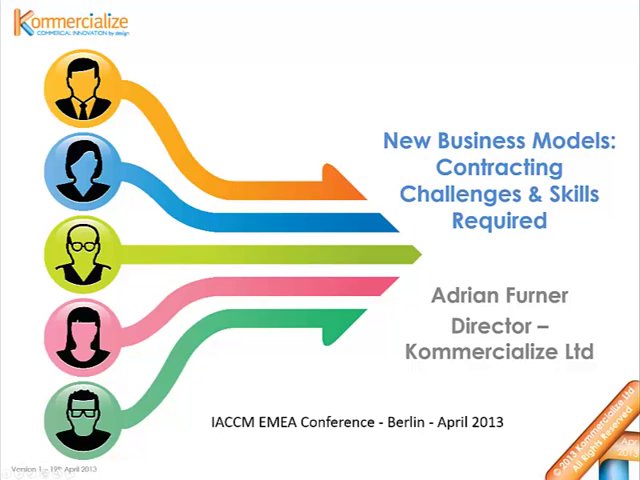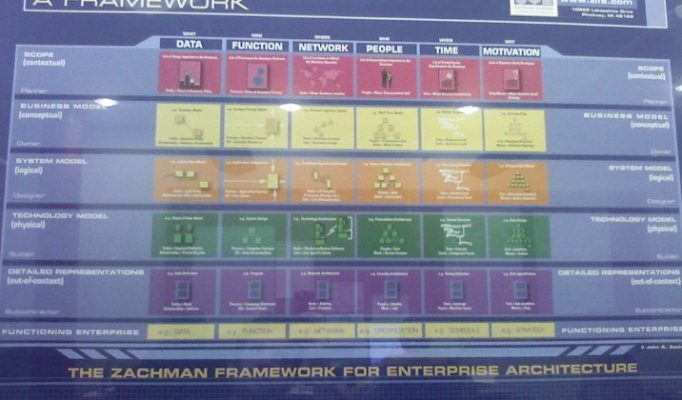Role and Responsibilities of a Business Technology Consultant
A Business Technology Consultant plays a vital role in helping organizations optimize their use of technology to achieve business goals. They analyze existing systems, identify areas for improvement, and recommend innovative solutions to enhance efficiency and performance. Their responsibilities also include guiding clients through technology implementations, ensuring seamless integration, and providing strategic advice to align technology initiatives with overall business strategies.
Assessing Business Needs
A Business Technology Consultant plays a vital role in bridging the gap between business objectives and technological solutions. Their primary responsibility is to understand the client’s business processes, goals, and challenges to recommend effective technology strategies. They assess the current IT infrastructure, identify areas for improvement, and align technology initiatives with overall business plans. Additionally, they ensure that technical solutions support operational efficiency, drive innovation, and enhance competitive advantage.
Assessing business needs involves engaging with stakeholders to gather detailed information about their requirements and expectations. Consultants analyze existing workflows, data management systems, and software applications to determine strengths and vulnerabilities. They also evaluate market trends and emerging technologies to recommend suitable tools and platforms. The goal is to develop tailored solutions that address specific business challenges while ensuring scalability and long-term sustainability.
Developing Technology Strategies
A Business Technology Consultant plays a pivotal role in aligning technology solutions with a company’s business goals. They assess the current technological landscape within an organization, identify areas for improvement, and recommend strategic initiatives to enhance efficiency and competitiveness. Their responsibilities include analyzing business processes, understanding client needs, and designing innovative technology strategies to support growth and innovation. Additionally, they assist in selecting appropriate technologies, oversee implementation, and ensure integration aligns with organizational objectives. Developing technology strategies involves conducting market research, evaluating emerging trends, and creating roadmaps that facilitate digital transformation. They also collaborate with stakeholders across departments to prioritize technology investments, manage project timelines, and ensure smooth execution. Ultimately, a Business Technology Consultant contributes to shaping a technological environment that drives business success while maintaining agility and scalability.
Implementing Solutions
A Business Technology Consultant plays a crucial role in bridging the gap between business needs and technology solutions. They analyze an organization’s current technological infrastructure, identify areas for improvement, and recommend strategic innovations to optimize operations. Their responsibilities include assessing client requirements, designing tailored technological solutions, and ensuring seamless integration into existing workflows. Additionally, they provide guidance on the implementation of new systems, coordinate with stakeholders, and manage project timelines to ensure successful delivery. These consultants also offer training and support to ensure that staff can effectively use new technologies, ultimately driving efficiency, productivity, and competitive advantage for the organization.
Managing Project Deployment
A Business Technology Consultant plays a crucial role in guiding organizations through the effective integration of technology solutions to meet their business objectives. They analyze business needs, recommend appropriate technological tools, and ensure seamless implementation to optimize company performance.
Managing project deployment is a key responsibility of a Business Technology Consultant. This involves planning, coordinating, and executing technology projects from inception to completion while adhering to budgets and timelines. They oversee resource allocation, mitigate risks, and ensure that all project deliverables align with client expectations and technical standards, ultimately ensuring successful deployment and adoption of new systems.
Providing Ongoing Support and Maintenance
A Business Technology Consultant plays a vital role in helping organizations leverage technology solutions to achieve their business objectives. Their responsibilities include analyzing current technology systems, identifying areas for improvement, and recommending innovative solutions to enhance efficiency and productivity. They collaborate with stakeholders to develop strategic technology roadmaps and ensure the seamless integration of new systems. Providing ongoing support and maintenance is a critical aspect of their role, as it involves troubleshooting technical issues, performing regular system updates, and ensuring security protocols are up to date. Additionally, they monitor system performance, gather user feedback, and implement necessary changes to optimize functionality. Their continuous support helps minimize downtime, improve user satisfaction, and sustain long-term operational excellence. Overall, their expertise ensures that technology remains aligned with business needs and adapts to evolving market demands.
Skills and Qualifications
A business technology consultant must possess a diverse set of skills and qualifications to effectively bridge the gap between business needs and technological solutions. Strong technical knowledge combined with strategic thinking enables them to analyze complex systems and recommend innovative improvements. Additionally, excellent communication and problem-solving abilities are essential for collaborating with clients and implementing effective strategies. A solid educational background and relevant certifications often support their expertise, helping them deliver valuable insights and ensure successful project outcomes.
Technical Expertise
As a business technology consultant, possessing a strong foundation of skills and qualifications is essential to effectively analyze, advise, and implement technological solutions for clients. Technical expertise is a critical component that supports the successful delivery of consulting services, ensuring clients’ technology infrastructures are optimized and aligned with their business goals.
- In-depth understanding of IT systems, networks, and infrastructure
- Proficiency in software development and application management
- Knowledge of cloud computing platforms and services
- Experience with data analysis, database management, and cybersecurity
- Strong problem-solving and analytical skills
- Excellent communication and stakeholder management abilities
- Ability to translate complex technical concepts into business language
Business Acumen
Skills and qualifications related to business acumen are essential for a business technology consultant to effectively bridge the gap between technology solutions and business objectives. A strong understanding of how technology impacts overall business operations enables consultants to recommend strategies that drive growth and efficiency.
- Deep understanding of industry trends and market dynamics
- Ability to analyze business processes and identify areas for improvement
- Strong communication skills to convey technical concepts to non-technical stakeholders
- Knowledge of financial principles to assess investment value and ROI
- Problem-solving skills to develop innovative technology solutions
- Experience in project management to oversee implementation and change management
- Proficiency in data analysis to support decision-making
- Adaptability to rapidly changing technology landscapes and business environments
- Understanding of compliance, security, and regulatory requirements relevant to the industry
- Strategic thinking to align technology initiatives with long-term business goals
Communication Skills
Effective communication skills are essential for a business technology consultant to translate complex technical concepts into clear, understandable language for clients and stakeholders. Strong verbal and written communication abilities enable the consultant to collaborate efficiently, present solutions convincingly, and build trust with diverse audiences. Additionally, active listening and the capacity to ask insightful questions help identify client needs accurately. Technical proficiency combined with excellent communication skills ensures that recommendations are practical and aligned with business objectives, ultimately driving successful project outcomes.
Problem-Solving Abilities
A successful business technology consultant possesses strong problem-solving abilities that enable them to analyze complex technical issues and develop innovative solutions. They should have a deep understanding of various business processes and how technology can optimize operations. Excellent analytical skills paired with creative thinking allow them to identify issues quickly and implement effective strategies. Furthermore, adaptability and continuous learning are essential to stay current with evolving technology trends. Strong communication and interpersonal skills complement their technical expertise, ensuring they can collaborate effectively with clients and team members to achieve desired outcomes.
Project Management Skills
Effective project management skills are essential for a business technology consultant to successfully lead initiatives and drive technological advancements within organizations. These skills ensure projects are completed on time, within scope, and within budget, while also aligning with strategic business goals.
- Strong organizational and planning abilities to coordinate tasks and resources efficiently
- Excellent communication skills to facilitate collaboration among stakeholders, clients, and team members
- Proficiency in risk management to identify potential issues and develop mitigation strategies
- Ability to use project management tools and software to track progress and manage documentation
- Leadership skills to motivate teams and manage cross-functional groups effectively
- Problem-solving skills to address challenges promptly and adapt plans as needed
- Knowledge of technology trends and how they can be integrated into business solutions
- Time management skills to prioritize tasks and ensure deadlines are met
Combined with a solid understanding of business processes and technical expertise, these project management skills enable business technology consultants to deliver innovative solutions that enhance operational efficiency and competitive advantage.
Key Technologies and Tools Utilized
In the role of a business technology consultant, understanding and leveraging key technologies and tools is essential for driving innovation and efficiency. These professionals utilize a variety of software, platforms, and analytical tools to assess client needs, develop strategic solutions, and optimize business processes. Mastery of modern technology ensures that consultants can provide valuable insights and implement effective technological improvements tailored to the unique requirements of each organization.
Enterprise Software Solutions
Key technologies and tools utilized in enterprise software solutions are essential for optimizing business operations and driving innovation. These include enterprise resource planning (ERP) systems, customer relationship management (CRM) platforms, and supply chain management (SCM) software, which streamline processes and enhance efficiency. Cloud computing technologies enable scalable and flexible solutions, allowing organizations to access data and applications remotely. Additionally, data analytics and business intelligence tools are critical for informed decision-making. Integration platforms and APIs facilitate seamless communication between disparate systems, ensuring a unified technology environment. Modern enterprise solutions also leverage security tools to safeguard sensitive information and ensure compliance with regulatory standards.
Data Analytics and Business Intelligence
Key technologies and tools utilized by business technology consultants include a wide range of software platforms and hardware solutions designed to optimize business processes. These encompass cloud computing services, enterprise resource planning systems, customer relationship management tools, and data management platforms. Additionally, collaboration and communication tools such as Slack, Microsoft Teams, and project management software like Jira and Asana are essential for streamlining teamwork and project execution.

Data analytics and business intelligence play a crucial role in informing decision-making and driving strategic initiatives. Business technology consultants leverage advanced analytics tools, including Tableau, Power BI, and QlikView, to visualize complex data and uncover actionable insights. They also employ data warehousing solutions and advanced statistical analysis techniques to analyze large datasets, identify trends, and support predictive modeling. These capabilities enable businesses to enhance operational efficiency, enable data-driven strategies, and maintain a competitive edge in the marketplace.
Cloud Computing Platforms
As a business technology consultant, leveraging advanced key technologies and tools is essential to deliver innovative solutions for clients. Cloud computing platforms play a pivotal role in enabling scalable, flexible, and cost-effective IT infrastructure. Leading cloud providers such as Amazon Web Services, Microsoft Azure, and Google Cloud Platform offer a wide range of services including data storage, AI and machine learning, analytics, and cybersecurity solutions. Additionally, tools like Docker and Kubernetes facilitate containerization and orchestration, ensuring efficient application deployment and management. Collaboration platforms like Slack, Jira, and Trello help streamline project management and team communication, enhancing overall productivity. Incorporating these technologies allows consultants to design robust, agile, and future-proof business solutions tailored to unique client needs.
Cybersecurity Tools
In the role of a business technology consultant, leveraging advanced cybersecurity tools is essential to ensure the security and integrity of organizational data. Key cybersecurity tools include firewalls for network protection, intrusion detection and prevention systems for monitoring threats, encryption software to safeguard sensitive information, and antivirus programs to detect malicious software. Additionally, vulnerability assessment tools help identify potential security weaknesses, while security information and event management systems facilitate real-time analysis of security alerts. These technologies work together to create a robust defense against cyber threats, enabling businesses to operate securely and efficiently in a digital environment.
Automation and AI Technologies
Key technologies and tools utilized by business technology consultants include a wide range of software platforms, data analysis tools, and cloud computing services to optimize business processes. Automation tools such as robotic process automation (RPA) are employed to streamline repetitive tasks, increasing efficiency and reducing errors. Artificial intelligence technologies, including machine learning algorithms and natural language processing, enable insights extraction, predictive analytics, and enhanced decision-making. Additionally, consultants leverage project management and collaboration software to ensure seamless communication and implementation across teams. Together, these technologies facilitate innovative solutions that drive business growth and operational excellence.
Industries Served
Our business technology consulting services cater to a diverse range of industries, helping organizations leverage innovative solutions to enhance efficiency and drive growth. Whether you operate in healthcare, finance, manufacturing, or retail, our expertise is tailored to meet the unique technological needs of your industry. We are committed to delivering strategic guidance and cutting-edge technology implementations that facilitate your success in a competitive marketplace.
Finance and Banking
In the finance and banking industry, a business technology consultant plays a crucial role in streamlining operations, enhancing security, and driving digital transformation. They help financial institutions implement innovative solutions such as fintech applications, secure online banking systems, and advanced data analytics. By leveraging cutting-edge technology, these consultants enable banks and financial firms to improve customer experiences, comply with regulatory standards, and remain competitive in a rapidly evolving market.
Healthcare
In the healthcare industry, business technology consultants play a vital role in improving patient care, streamlining operations, and ensuring compliance with regulations. They assist healthcare providers in implementing advanced electronic health records systems, telemedicine solutions, and data analytics tools to enhance efficiency and decision-making. Additionally, these consultants help organizations navigate complex cybersecurity requirements to protect sensitive patient information. By leveraging innovative technologies, healthcare businesses can achieve better outcomes, reduce costs, and stay ahead in a competitive landscape.
Manufacturing
In the manufacturing industry, a business technology consultant plays a vital role in streamlining processes and optimizing operations through innovative technological solutions. They help manufacturers implement advanced automation systems, integrate manufacturing execution systems (MES), and enhance supply chain management. By leveraging data analytics and Internet of Things (IoT) technologies, these consultants enable manufacturers to increase efficiency, reduce costs, and improve product quality. Their expertise supports the adoption of Industry 4.0 practices, ensuring manufacturers stay competitive in a rapidly evolving market. Ultimately, a business technology consultant helps manufacturing companies harness the power of technology to drive growth and operational excellence.
Retail
Our business technology consulting services are tailored specifically for the retail industry, helping companies optimize their operations through innovative technological solutions. We understand the unique challenges faced by retailers, including inventory management, customer engagement, and omnichannel support, and we deliver strategies that enhance efficiency and drive growth. From implementing advanced point-of-sale systems to developing customized e-commerce platforms, our expertise ensures your retail business stays competitive in a rapidly evolving market.
Technology and Software Development
As a business technology consultant, we serve a diverse range of industries by providing tailored technology solutions that enhance operational efficiency and drive growth. Our expertise spans manufacturing, healthcare, finance, retail, and logistics, ensuring that each industry benefits from innovative software development and strategic technology integration.
We specialize in delivering cutting-edge technology and software development services that align with our clients’ unique business objectives. From custom application development to cloud computing and data analytics, our solutions are designed to improve productivity, streamline processes, and enable digital transformation across various sectors.
Benefits of Hiring a Business Technology Consultant
Engaging a business technology consultant can provide invaluable advantages for companies looking to optimize their operations and stay competitive in a rapidly evolving digital landscape. These experts bring specialized knowledge to assess current systems, recommend innovative solutions, and implement effective technologies that boost productivity. By partnering with a technology consultant, businesses can achieve streamlined processes, enhanced security, and a strategic edge, ultimately driving growth and success in today’s technology-driven marketplace.
Enhanced Operational Efficiency
Hiring a business technology consultant can significantly enhance your company’s operational efficiency by streamlining processes and leveraging the latest technological solutions. These experts analyze your current systems, identify inefficiencies, and recommend tailored strategies that optimize workflow and reduce redundancies.
With the guidance of a technology consultant, businesses can implement automation tools and advanced software that increase productivity and accuracy. They also assist in integrating new technologies seamlessly, minimizing downtime and ensuring that employees are well-trained to utilize the tools effectively.
Moreover, a business technology consultant helps organizations stay ahead of technological trends and industry best practices, which can lead to cost savings and a competitive edge. By focusing on strategic technology deployment, companies can improve decision-making, enhance customer service, and achieve operational excellence.
Cost Savings
Hiring a business technology consultant can significantly contribute to cost savings for your organization. They provide expert advice on optimizing your technology infrastructure, reducing unnecessary expenditures, and streamlining operations. By identifying inefficiencies and recommending cost-effective solutions, these consultants help businesses avoid costly mistakes and investments. Additionally, their insights can lead to improved systems that boost productivity, ultimately saving time and money. Investing in a business technology consultant ensures your company leverages the latest technology efficiently, maximizing return on investment while minimizing expenses.
Competitive Advantage
Hiring a business technology consultant can provide your company with a significant competitive advantage by leveraging expert knowledge to optimize technological processes and strategies.
- Access to specialized expertise that keeps your business ahead of industry trends and innovations.
- Enhanced efficiency through the identification and implementation of the best technology solutions tailored to your business needs.
- Cost savings by streamlining operations and avoiding unnecessary or ineffective technology investments.
- Improved security protocols to protect sensitive data and ensure compliance with regulations.
- Support for digital transformation initiatives, enabling your business to adapt to changing market dynamics.
- Scalable solutions that grow with your business, ensuring long-term competitiveness.
Risk Mitigation
Hiring a business technology consultant offers significant benefits in risk mitigation by identifying potential technological vulnerabilities before they become major issues. These professionals provide expert insights to develop robust cybersecurity measures, ensuring sensitive data is protected and reducing the likelihood of costly data breaches. Additionally, they help implement reliable disaster recovery and backup strategies, minimizing downtime and operational disruptions. With their specialized knowledge, consultants can foresee and address evolving technology threats, enabling the business to stay compliant with industry regulations and avoid legal complications. Ultimately, engaging a business technology consultant enhances your company’s resilience and security posture, supporting long-term growth and stability.
Innovation and Digital Transformation
Hiring a business technology consultant can significantly enhance a company’s innovation and digital transformation efforts. These experts bring specialized knowledge and insights that help organizations adopt the latest technological advancements efficiently. By leveraging their expertise, businesses can streamline processes, reduce operational costs, and improve overall productivity. Additionally, consultants assist in developing tailored digital strategies that align with business goals, ensuring a smoother transition to new technologies. Their guidance enables companies to stay competitive in rapidly evolving markets, foster innovation, and unlock new growth opportunities through effective digital transformation initiatives.





